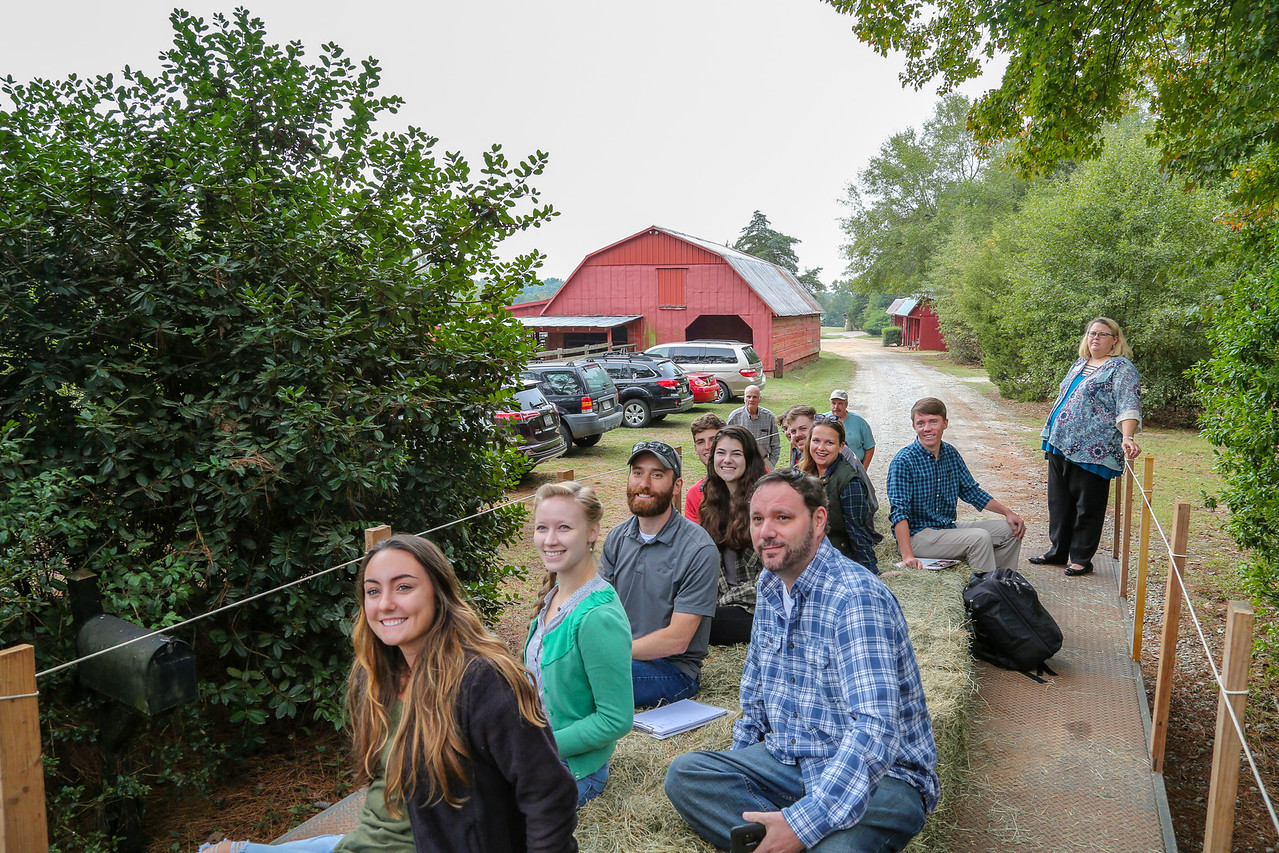Creating an agritourism trail and promoting the novelty of farming to outsiders are among suggestions University of Georgia students offered Hart County after touring farms, meeting with local residents and learning about the county’s assets, including its poultry industry.
Working through the Archway Partnership, a public service and outreach unit, 14 service-learning students in the College of Environment and Design spent the fall semester learning about rural preservation and its real-world applications. They focused on Hart County, which sits on the Georgia-South Carolina border and has been a UGA Archway Partnership community since 2008.
The goal of the project was to provide county officials with materials they can use to grow an agritourism industry in northeast Georgia, and for students to gain practical experience in rural preservation. Identifying and mapping local assets to use in attracting tourists was identified as a priority for the Hart County Archway Partnership executive committee.
“For us, it’s about having pride in what agriculture is and how it’s built our county and continues to build it,” said Bill Leard, chair of the Hart County executive committee. “Archway has sort of been a catalyst to help bring these [community] needs to the forefront.”
While touring the community, the students met Jeff Brown, co-owner of JFK Farm. Brown introduced the students to the realities of a working farm while giving the class a tour of one of Hart County’s largest poultry operations. While many of the students had previously never been on a farm, Brown says they provide a valuable insight that he and others in the community wouldn’t normally have.
“The best ideas are going to come from different perspectives,” said Brown, a member of the Hart County Archway Partnership executive committee. “You can’t have a group of individuals get together that come from the same background, same perspective, and try to formulate a plan that’s going to benefit everybody. So these students, coming from the different backgrounds that they do, I think they’re definitely going to be able to help us out with this.”
For the students, traveling to Hart County and meeting with community leaders provided an opportunity to put their classroom instruction into practice.
“There’s a tangible aspect [to being in the field] that can’t be made up for in the classroom, so it’s really neat to have days like this,” said Olivia Stroud, a graduate student in historic preservation from Macon. “I’m excited to explore the agritourism side. I feel like that’s something that if you did not grow up in farm country then all of this is so novel and there’s a big opportunity to market that to people.”
For the course’s final project, the students developed proposals to enhance natural and cultural tourism—a tri-county fair, an agribusiness incubator and an agritourism trail to run throughout the county—capitalizing on the area’s robust agriculture industry that ranks among the largest in the state.
CED associate professor Cari Goetcheus said she chose Hart County for the students to study because it is a UGA Archway Partnership community, and civic and business leaders there are already familiar with UGA resources. Archway Professionals, who are UGA employees, live in the community and serve as a conduit between it and the university.
“A lot of times I end up going to communities where they don’t know what to do, they don’t know how to do it,” Goetcheus said. “So we end up doing what little we can, but here I think that we actually give back a lot more because they have the network and infrastructure to allow us to do the work.”
That existing infrastructure is the result of a decade-long relationship between UGA and Hart County, a relationship that leaves a lasting impression on the residents of the Georgia community.
“The community members in Hart County want to work with faculty and students because they really enjoy and value being a part of the UGA learning experience,” said Rob Gordon, director of the Archway Partnership. “Often it’s difficult for a community to understand what it means when they hear that UGA has a land-grant mission. But when they are able to see and work side-by-side with faculty and students in their community, they know that the University of Georgia is there to help them address their most pressing challenges.”


